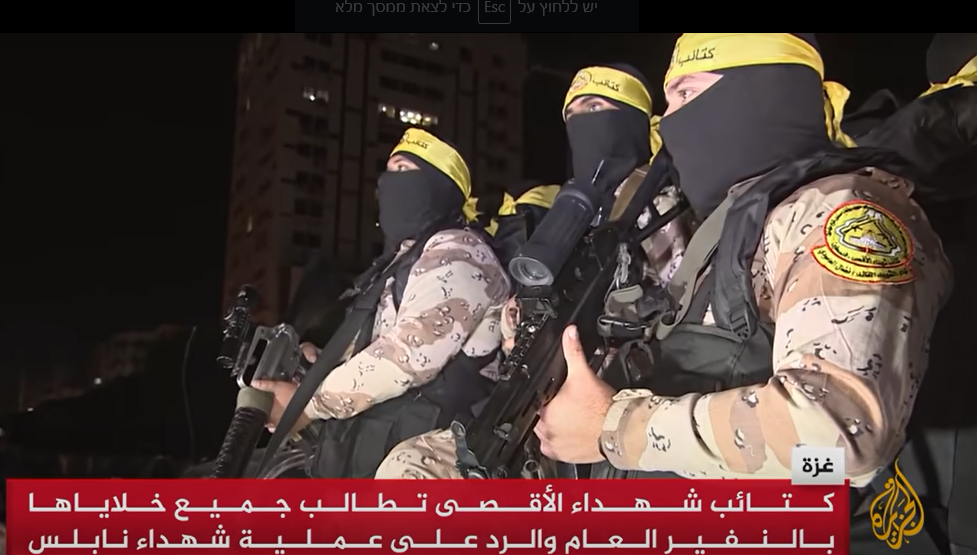Strengthening Security in Judea and Samaria
In response, Israel’s security cabinet, which recently convened to approve the hostage deal, also adopted measures to bolster security in Judea and Samaria.
The cabinet decided to maintain IDF force levels in the region as they were prior to the outbreak of the October 7, 2023, war.
A reduction in forces will require another cabinet decision.
According to Shin Bet Chief Ronen Bar, approximately 82 percent of terrorists released in the 2011 Shalit deal have returned to terrorism.
Senior security officials warn that the release of hundreds of terrorists into Judea and Samaria will serve as a significant boost to terrorist activities.
Many of the released individuals are expected to join groups in northern Samaria, increasing the likelihood of attacks on IDF forces and settlers, as well as attempts to destabilize the PA.
This process, officials caution, could unfold over several weeks.
Hamas’ Growing Influence
The release of these individuals is also expected to strengthen Hamas’s influence on the Palestinian street while further weakening the PA.
To counter celebratory displays, the IDF plans to deploy additional forces to Judea and Samaria before the release.
In a high-level security discussion chaired by Prime Minister Benjamin Netanyahu, Shin Bet Chief Ronen Bar recommended a major military operation in Judea and Samaria.
The proposed operation would target “terror battalions” that have emerged in northern Samaria in recent years.
“Israel must learn from October 7 not to allow the strengthening of terrorist elements. A broad and reality-changing process must collapse the battalions in Judea and Samaria and restore freedom of action,” Bar stated.
Bar also noted that the apparent decline in attacks in Judea and Samaria is misleading, masking a broader trend of increasing sophistication in terrorist tactics.
Since the 2021 “Guardian of the Walls” operation, terrorist groups have transitioned from Molotov cocktails to firearms and explosives.
Regional Security Challenges
Defense Minister Israel Katz recently convened local authority leaders in Judea and Samaria, warning them that the region is on the brink of a full-scale conflict.
He disclosed that the October 7 attacks had initially included plans to target settlements in Judea and Samaria.
Security forces are also tracking efforts by terrorist groups to smuggle advanced weapons into the region, supported by both Iranian and radical Sunni Islamic networks.
The security establishment anticipates that terrorist organizations will exploit vulnerabilities in Judea and Samaria, particularly traffic routes, by conducting shooting attacks and planting explosive devices.
PA Concerns and Response
Senior PA officials have expressed concerns over the release of Hamas and Islamic Jihad terrorists.
One senior PA official criticized Israel’s decision, arguing that the terrorists should have been deported to Gaza, which is already a major terrorist hub.
To mitigate tensions, the PA recently negotiated a ceasefire with terrorist groups in the Jenin refugee camp.
Israeli security officials emphasize that the release of these individuals represents a dual challenge: a security threat to Israel and a test of the PA’s resolve to combat terrorism, which also jeopardizes Mahmoud Abbas’s leadership. The coming weeks are expected to reveal the extent to which the PA and Israeli security forces can address these challenges.




